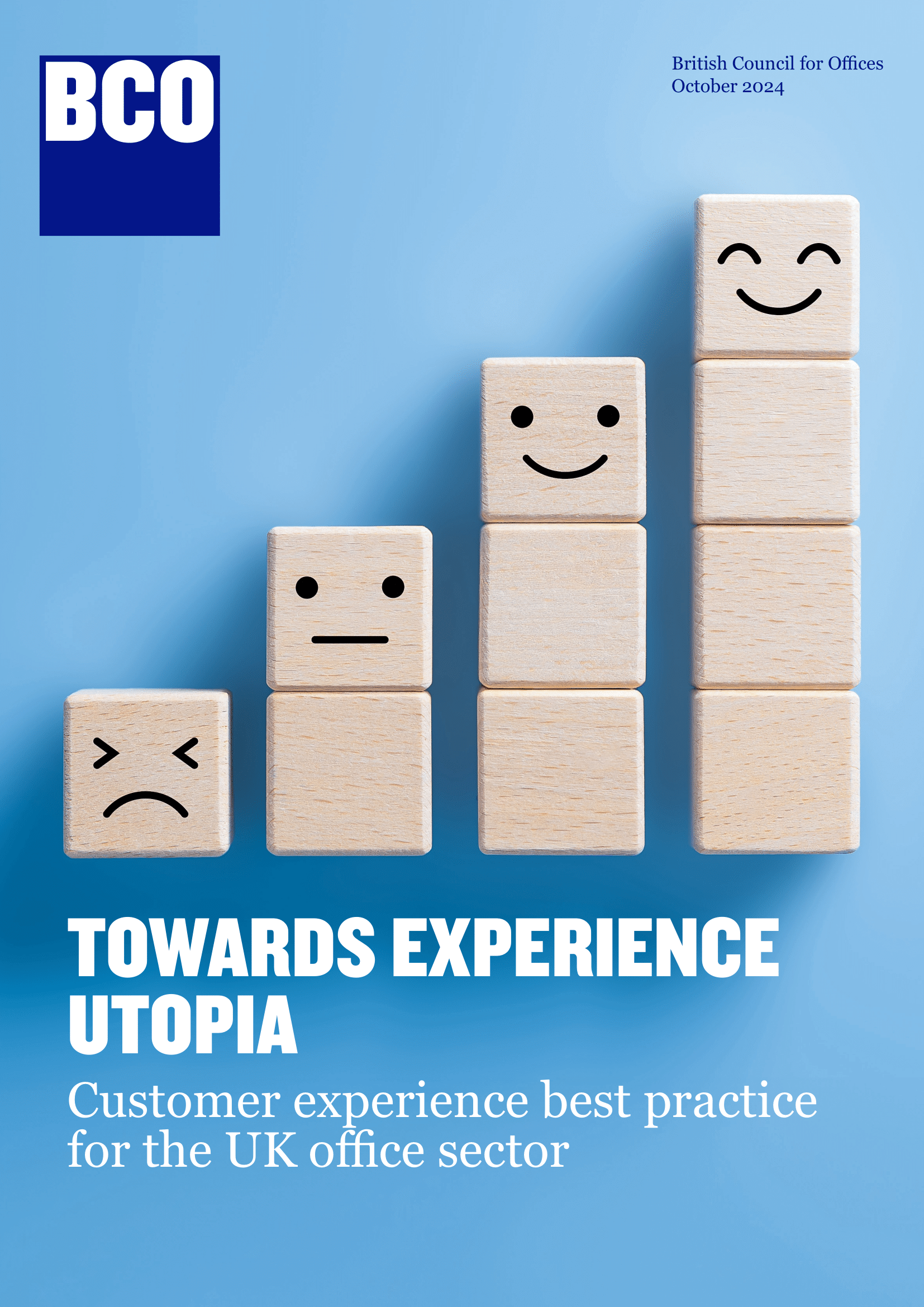
Publication title
Technology, Media and Telecommunications
Publication date
16.05.14
Category
Today, the British Council for Office’s (BCO) releases new research which assesses the impact of the TMT sector (Technology, Media, Telecoms) on the commercial property industry. One of the reports key findings is that there is no single TMT sector – in reality it is better understood as five sub-sectors (Advertising and Creative, Traditional Media, New Technology, Technology and Telecoms) with varying traits according to the stage the company is at in its lifecycle.
The five sub-sectors house some of the most talked about business success stories of recent years, with companies quickly rising from start-up to global household brands, and clearly developing innovations which shape the way we live and work. As a result, much attention has been given to the approach the sector has taken to the workplace. The report, Technology, Media and Telecommunications, highlights that due to the fast paced, entrepreneurial nature of TMT companies, businesses can pick up trends and adopt ground-breaking workplace solutions faster than other industries. However, the research also reveals that these changes have quickly permeated the wider commercial property market, heralding new requirements and approaches to workplace design that often challenge previous standards in a number of areas:
– Leasing
– Office fit-out
– Changing nature of work
Leasing
The five TMT sub-sectors have set a precedent for demanding greater flexibility in lease terms from developers and letting agents. Due to the natural rapid expansion and contraction of these organisations, they require shorter leases as they are less able to predict their headcount. The average lease length for a TMT organisation requiring less than 5,000 feet was 5.6 years, compared to the UK average of 9 years. Certain organisations have adapted to accommodate this trend, with The Office Group for example offering leases of between three to twelve months to cater for short lease demand. The BCO believes that the wider property sector needs to consider the impact of this churn and perpetual leasing activity. This is particularly important as UK lease lengths declining across all sectors and other organisations follow this trend of incorporating as much flexibility into their lease terms as possible.
Fit-out
The report also reveals that organisations within the five TMT sub-sectors often demand that developers and agents fit out their office space to meet their own standards and criteria, a trend that has since been replicated across other industries. TMT companies use their office space as a means of expressing their culture and identity, and consequently tend to value high specification and tailored fit-outs. As a result, fewer than 50% of companies surveyed in the advertising and creative sub-sector lease Grade A office space, reflecting a desire to keep rental expenditure to a minimum and spend more on the fit-out. This trend can now be seen across other industries, as organisations increasingly demand a bespoke interior which encourages employee interaction, differentiates it from competitors, and impresses prospective employees in the war for talent. The report highlights Google as an example of an organisation that has exemplified this trend for a flexible fit out. The architects of its new London headquarters note that the building is comparable to a theatre, with the props coming in the form of “little meeting rooms and furniture, all of which you can reconfigure overnight.”
Changing nature of work
TMT companies have also led the way in developing office space in order to meet the changing nature of office life. The report reveals that employees within TMT organisations see a minimal distinction between their work and personal life, and as a result larger TMT organisations demand at least 50% of their floor space be dedicated to areas where employees can socialise and work collaboratively. Plus with the digitalisation of work, consumerisation of IT and with nearly 80% of employees already using their personal devices at work, organisations are increasingly less concerned with providing dedicated desk space and rather being flexible to accommodate new technology. The report notes that these trends are not isolated to the TMT sub-sectors, but herald a broader pattern of change across other industries in future, as developers and letting agents take an increasingly customer focused approach to providing office space.
Richard Kauntze, Chief Executive of the BCO, says:
“As the TMT sector reaches a level of maturity, this research reveals that common trends in workplace design within the sector are less dependent on the organisation’s specific activity, but rather its size and maturity. This is indicative of a wider shift in the commercial property sector where developers and letting agents treat occupiers as individuals rather than making assumptions based on sector or type.”
“While the TMT sector may have pushed boundaries in challenging developers to meet different demands and needs, it seems companies from all sectors are inspired by the approach of TMT companies like Google. As a result, demand for flexible, connected and collaborative workspaces is becoming the norm.”
The report will be launched this morning (Friday 16th May) during a seminar at the BCO’s annual conference being held at the ICC in Birmingham. A panel, including Juliette Morgan from Tech City UK and developer members of the BCO, will be discussing the report and how trends developing in the TMT sector have spread to the wider office market.
-Ends-
For further info please contact:
| Andrew Griffiths / Scarlett Yianni / Andy Rogerson | ||
| British Council for Offices / Blue Rubicon | ||
| T +44 (0)20 7260 2700 / 07850 922350 bco@bluerubicon.com |
Notes to editors:
About the report
The Technology, Media and Communications report was produced by AECOM and Cushman & Wakefield and sponsored by Derwent London, Land Securities, Development Securities, Stanhope, Hines and Argent.
About the BCO
The British Council for Offices (BCO) is the UK’s leading member organisation representing the interests of all those who occupy, design, build, own or manage offices in the UK. Since inception in 1990, the BCO has provided thought leadership and best practice in all issues related to the creation and use of office space – through to its research, awards, conference and events programmes. www.bco.org.uk



